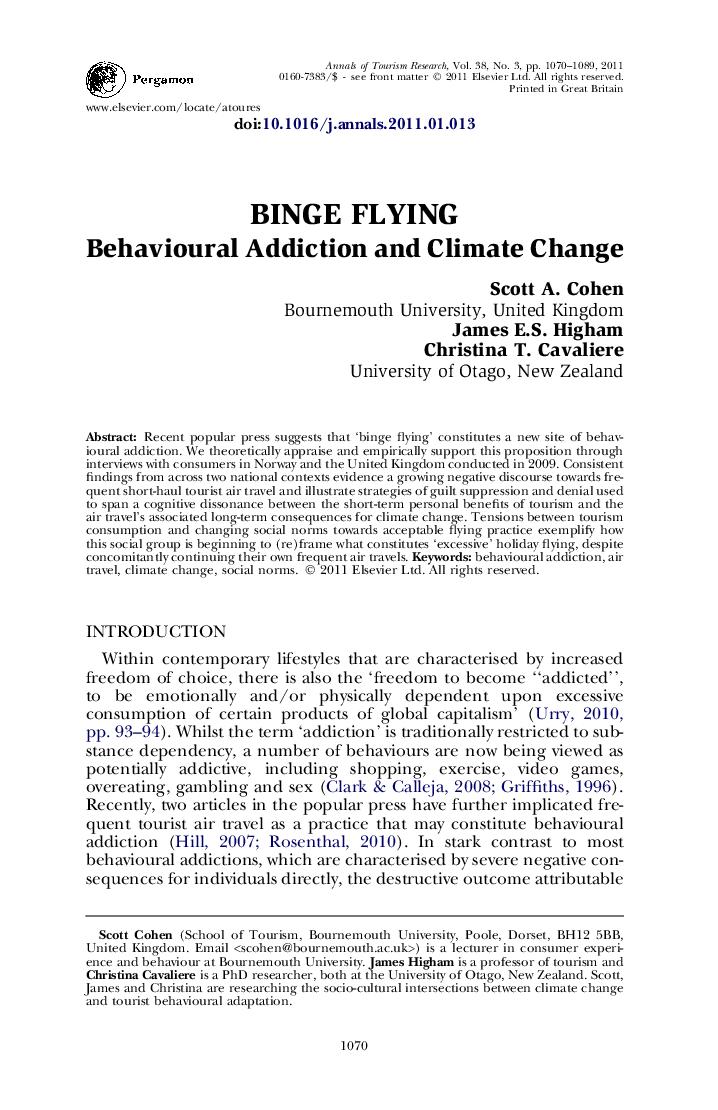| Article ID | Journal | Published Year | Pages | File Type |
|---|---|---|---|---|
| 1007697 | Annals of Tourism Research | 2011 | 20 Pages |
Recent popular press suggests that ‘binge flying’ constitutes a new site of behavioural addiction. We theoretically appraise and empirically support this proposition through interviews with consumers in Norway and the United Kingdom conducted in 2009. Consistent findings from across two national contexts evidence a growing negative discourse towards frequent short-haul tourist air travel and illustrate strategies of guilt suppression and denial used to span a cognitive dissonance between the short-term personal benefits of tourism and the air travel’s associated long-term consequences for climate change. Tensions between tourism consumption and changing social norms towards acceptable flying practice exemplify how this social group is beginning to (re)frame what constitutes ‘excessive’ holiday flying, despite concomitantly continuing their own frequent air travels.
Research highlights► First study of binge flying as a site of behavioural addiction. ► Comparative design offers interview findings with consumers from Norway and the UK. ► CO2 from participants’ own flying accounted for through guilt suppression and denial. ► Dilemma between tourism’s short-term gratifications and air travel’s climate impact. ► Social backlash towards ‘excessive’ flying at odds with growth in tourist air travel.
